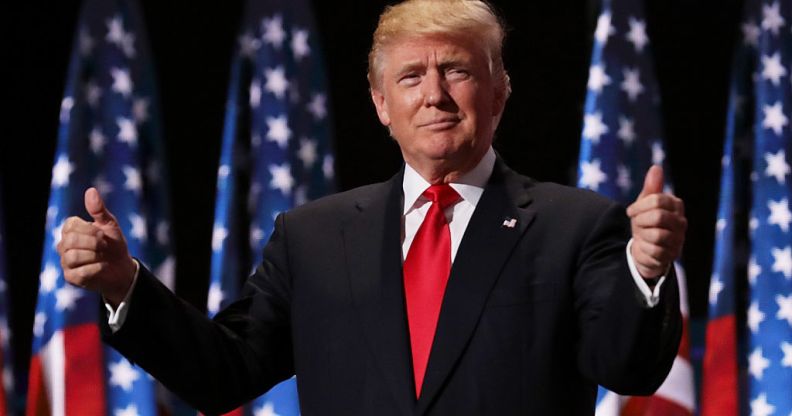Researchers find Donald Trump’s 2016 rallies led to rise in hate crimes

Chip Somodevilla/Getty
Researchers in the United States have found that there was a 226 percent increase in hate crimes in counties that hosted Donald Trump rallies in 2016.
The three researchers—Ayal Feinberg, Regina Branton and Valerie Martinez-Ebers—found that Trump’s rhetoric may encourage hate crimes, they wrote in The Washington Post.
By using the Anti-Defamation League’s Hate, Extremism, Anti-Semitism Terrorism map data, the researchers looked at whether there had been increases in rates of hate crimes in the months after a Trump rally.
The results showed that there had been a significant increase in reported hate crimes in counties that had hosted Trump rallies in the lead up to the presidential election in 2016 compared to other counties that did not.
Attempts to explain away increase in hate crimes is ‘unrealistic’
They note in their article that they cannot be certain Trump’s rhetoric caused the increase in hate crimes—however, they say that attempts to explain the increases away as “faux hate crimes” are unrealistic.
“To test this, we aggregated hate-crime incident data and Trump rally data to the county level and then used statistical tools to estimate a rally’s impact,” the researchers wrote.
“We included controls for factors such as the county’s crime rates, its number of active hate groups, its minority populations, its percentage with college educations, its location in the country and the month when the rallies occurred.”
The researchers also point out that hate crimes across the United States appear to have increased by 17 percent during 2016, according to FBI statistics.
“We included controls for factors such as the county’s crime rates, its number of active hate groups, its minority populations, its percentage with college educations, its location in the country and the month when the rallies occurred.”
– The researchers
The group also point to another academic study which found that hearing Trump’s statements of bias against some groups made people more likely to write offensive things about those groups.

Alex Wong/Getty
Hate incidents and hate crimes are considered to be acts of violence or hostility against a person because of their identity, LGBT+ charity Stonewall says.
People can be victims of hate crimes for a variety of reasons, including their race, sexuality or gender identity.
Donald Trump demands federal investigation into Jussie Smollett after the actor was accused of faking a hate crime
Earlier this week, Donald Trump demanded a federal investigation into Empire actor Jussie Smollett after the actor—who was accused to staging a hate crime—had all charges dropped against him.
Tweeting on March 28, Trump said: “FBI & DOJ to review the outrageous Jussie Smollett case in Chicago. It is an embarrassment to our Nation!”
He later said to reporters outside the White House: “I think the case in Chicago is an absolute embarrassment to our country and I have asked that it be—that they look at it.
“Somebody hast to at least take a very good hard look.”
Smollett has maintained his innocence since he initially reported a hate crime in January, but was later accused of staging it to gain publicity.

